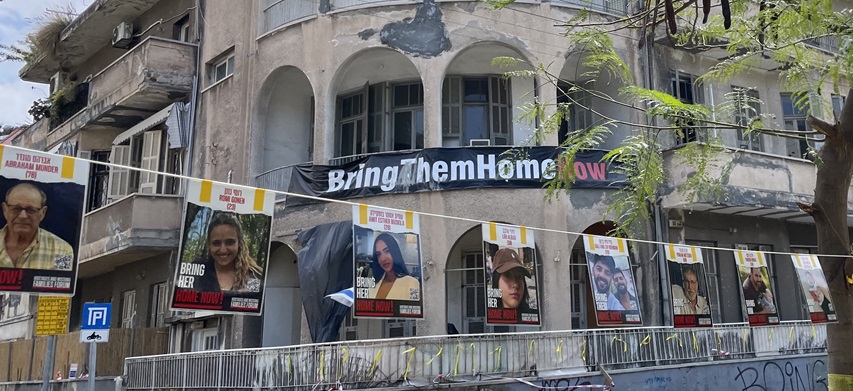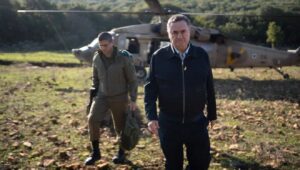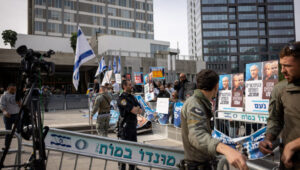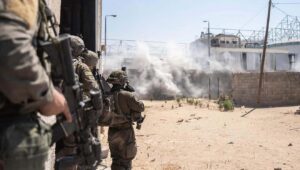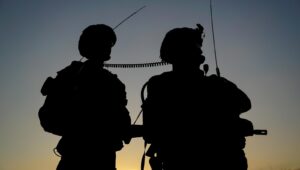Israel’s open wounds have been bleeding since October 7. The acute threat from Iran, concern for the soldiers on the front line and mourning for those murdered, killed and kidnapped characterize the atmosphere.
Arrival under threatening omens
On the evening of April 7, 2024, we finally arrive in Israel. It is exactly six months to the day after the Hamas massacre. In Germany, a travel warning is in place for Israel – visits to the country are clearly discouraged. And the situation has by no means eased. On the contrary: Iran is threatening revenge for the attack on the embassy compound in Damascus. Israel is preparing for a multi-front war and has closed 28 Israeli representations (embassies and consulates) worldwide. On April 6, Israel put its military on high alert, canceled weekend leave for combat units, recalled a number of reservists to air defense units and blocked GPS signals. The home front command instructs all residents to store water and food in the bunkers, as well as battery-operated radios, lamps, batteries, first aid equipment and medicines.
Nevertheless, we were not deterred from our journey. Our love, our desire to make it visible and to help where we can, prevailed.
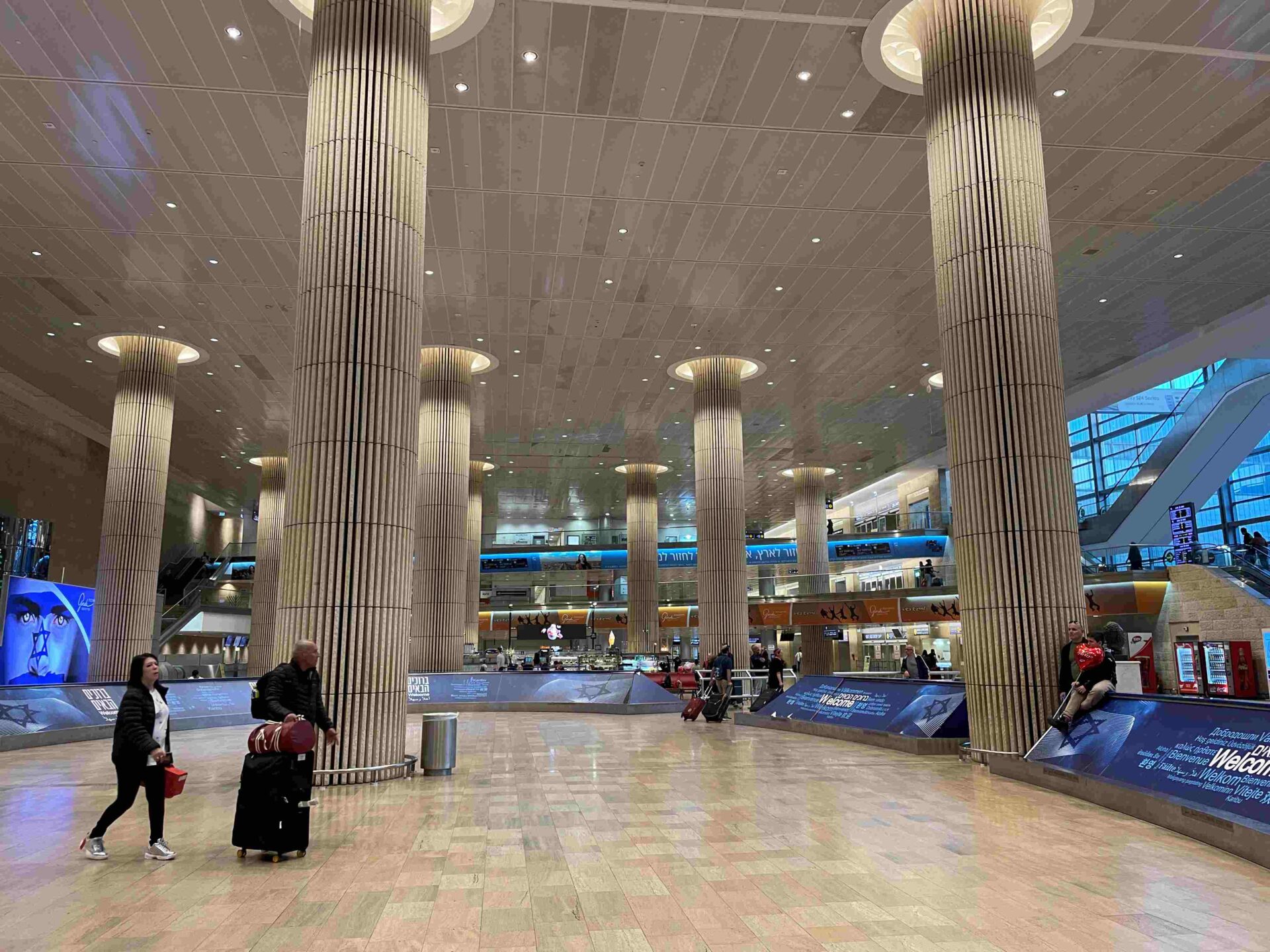
Ben Gurion Airport – familiar and yet strange. We have never seen it so empty. Apart from us, only 4 people without an Israeli passport have entered the country. It is the first visible sign of how much everything has changed here.
We spend the first few days in Tel Aviv. In the evening, we enquire about the bunker at our hotel and find out, that there is none because the house was built in 1866. We pack an emergency bag, so that we have the most important things at hand in the event of an attack.
I wasn’t prepared for the feelings that came up inside me. All of a sudden, everything, which you have been following with great interest and empathy from afar, is very close to you. And suddenly you are affected yourself – it is no longer someone else’s fate. I will never forget the feeling of powerlessness, of being at the mercy of others, of defenselessness that comes with the night. The anxiety of falling asleep – for fear of the circumstances under which you will wake up. The thoughts that don’t want to come to rest. I feel a fraction of the terror that Israel has lived with for so long.
Living memorial – the place of the hostages
The next morning we are thankful for a night without attacks – after a day with six rocket alarms. We make our way to the Hostages’ Square in the heart of Tel Aviv. It is a path of pain. Pictures of the kidnapped, posters and yellow ribbons commemorating them, line Rothschild Boulevard everywhere.
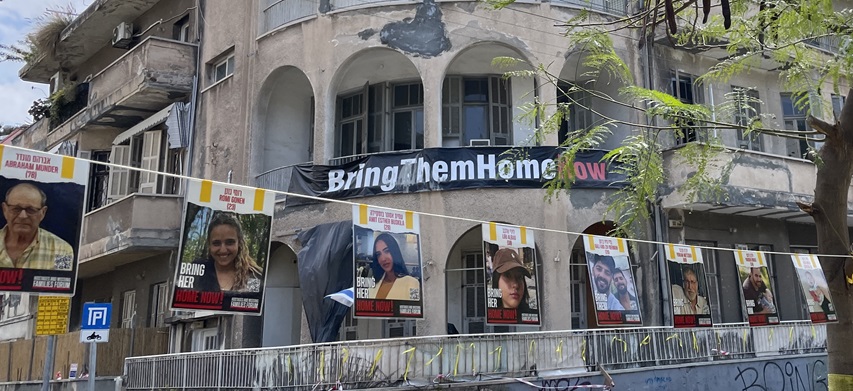
Life once bubbled here, we were impressed by the Israelis’ joy of life, when we first came to Israel. Today, the smiles have disappeared from many faces. The square in front of the Tel Aviv Museum of Art has been given a new purpose. Relatives of the kidnapped gather here to recount their terrible experiences and keep the memory of the hostages alive.

In the middle of the spacious area is a tent with posters of the abductees on the walls. A long set table is waiting for them. Next to it, a tunnel about 20 meters long, dark, narrow and low. Shots ring out over loudspeakers. A few seconds of Gaza simulation.
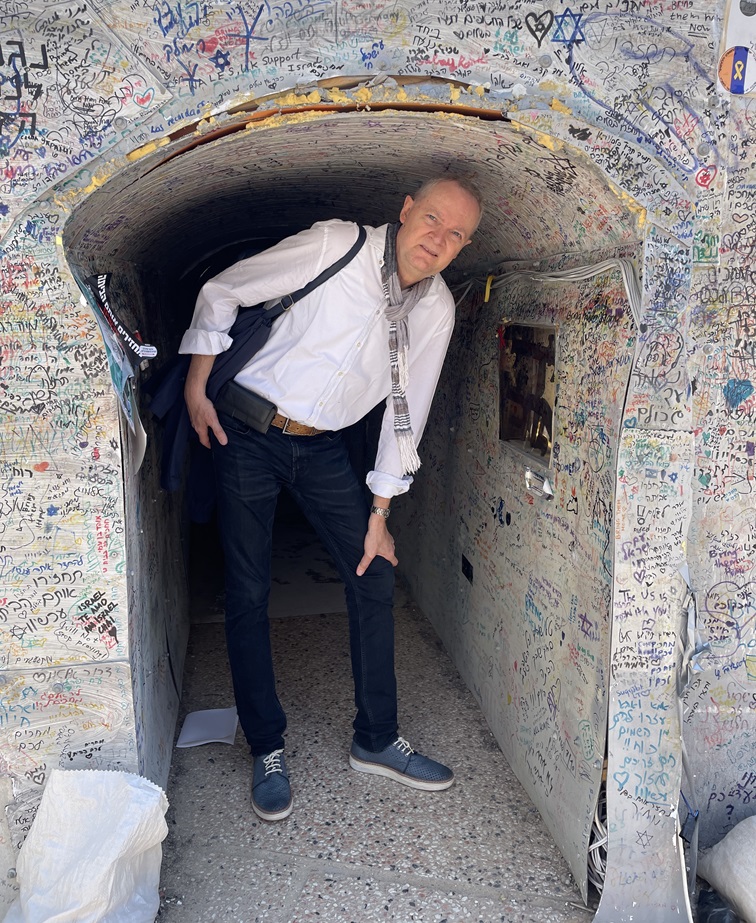
The fight against forgetting
We meet a family from Nahal Oz. They are here to tell the story of their kibbutz.
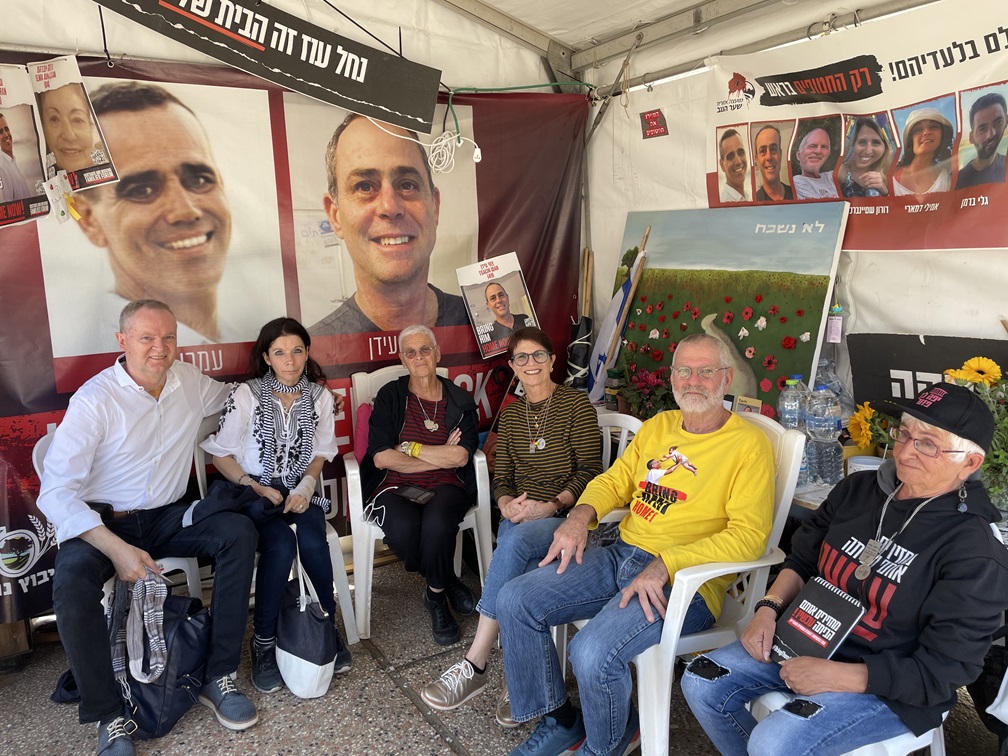
It is the first of these accounts that we hear directly from affected people. And like the personal experience of the horrors of the night, it changes our perspective. We get involved and turn into a part of the happenings. Their story becomes our mission.
The fact that they are sitting here today, is not something they take for granted, as they had originally planned to visit their son on October 6, at the Gaza border. However, as the kibbutz where he lived was celebrating its seventieth anniversary on October 7, they decided to arrive a day later. It didn’t happen: their son contacted them with the terrifying news that a massive attack is taking place. The terrorists wreaked havoc for hours. They forced kibbutz residents to get their neighbors to open the doors. Fifteen people were killed and 5 kidnapped. By a miracle, her son and his children were spared. The luck of the place was, that there were several policemen there that weekend, who took up the fight with the terrorists, so that they could not destroy or set fire to everything. But after the terrorists came civilians – in order to loot. Whole families from Gaza took what they could. The people of Nahal Oz had to spend the whole day in shelters. It was night, when they were finally evacuated. Thus they were spared the sight of the corpses and the extent of the destruction for the time being. Today, seven months later, their future is still uncertain. When will they return? There is talk of summer or fall, when the war is over. Three of the hostages were freed during the hostage deal in November 2023. They say that they were given 6 dates a day to eat – nothing more. One of them is still in the hospital in April. Two of the hostages are still being held captive seven months later.
What we don’t realize at this point is, that this report is one of the less tragic ones, compared to what we will see and hear later. It hits us right in the heart to hear about these fates. So outrageous, so surreal on this beautiful, sunny day.
When we ask them how we can help, they say, “Tell them what you see here. Don’t let the world forget”. We promise. When they hear that we are going to report about it on our website ARC to Israel, they say: “We need more people like you!”
Encounters in Tel Aviv
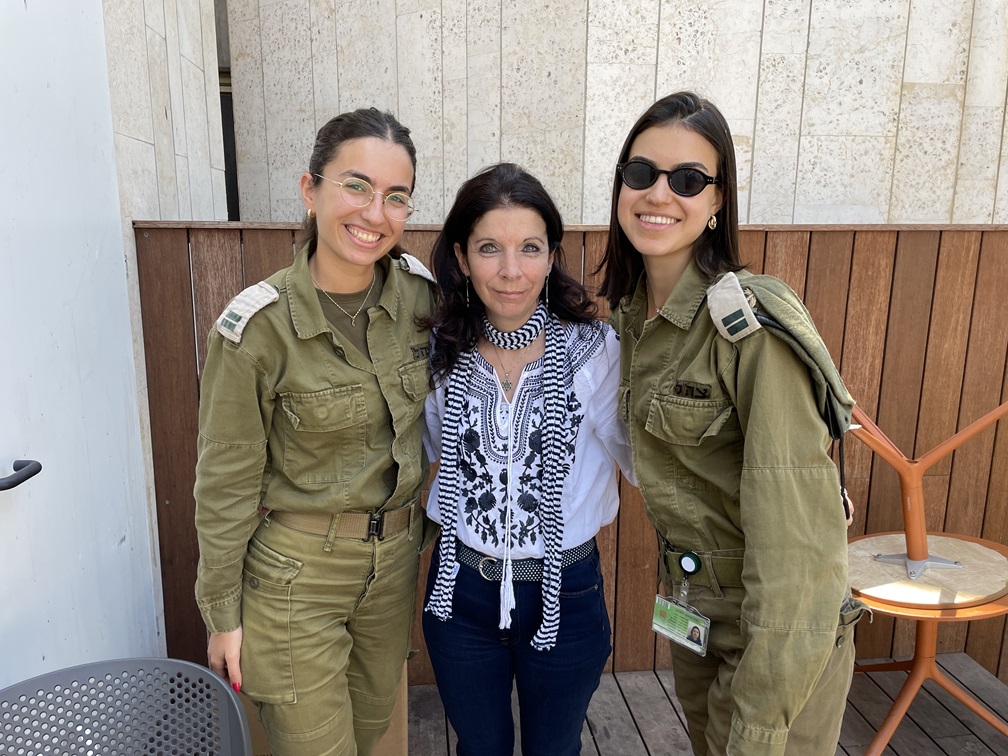
On the way home, we meet a couple of young female officers in a café. The Israeli soldiers fighting for the safety of their people have been under extreme mental and physical strain for months. In the midst of a cruel reality, they maintain their humanity. We are impressed by their confidence. When we tell them, why we are here and hand over our written prayer based on Psalm 23, they are surprised and visibly impressed.
On the same day, we also sit together with Gal.
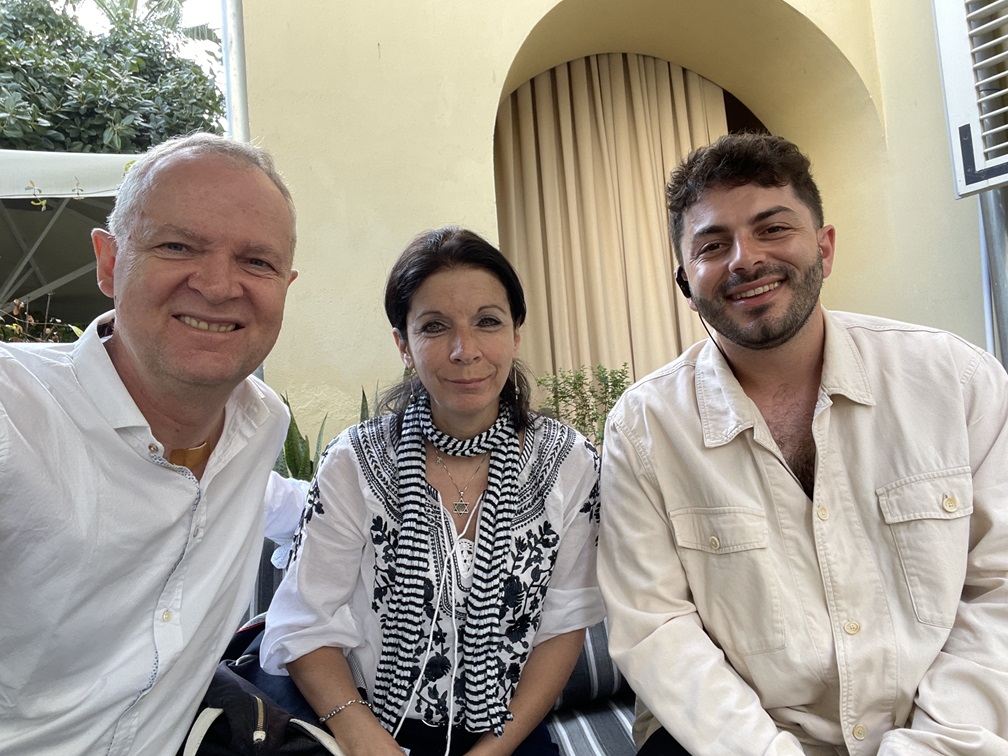
He returned from the front two days ago and now works as a shift manager in the restaurant.
He originally completed his military service as a mechanic in the Navy. During this war, he served as a mechanic in the tank brigades and repaired the defective Israeli tanks which returned from Gaza.
What is it like for him to return to a “normal” life from the reality of the front? He is looking forward to it, because during the last six months at the front it was, as if his own life had stopped and frozen. Only the service for Israel was important. Now he hopes to be able to resume his private life … for a while. Because he expects to be called up again soon, if the conflict with Lebanon or Iran escalates.
The general assessment is, that the fight against Hamas in the Gaza Strip is less dangerous and that the war with the much stronger opponents Hezbollah and Iran is still to come.
What was encouraging for Gal during this difficult time? The solidarity at the front lines and the love and care he experienced as a soldier from the Israeli civilian population.
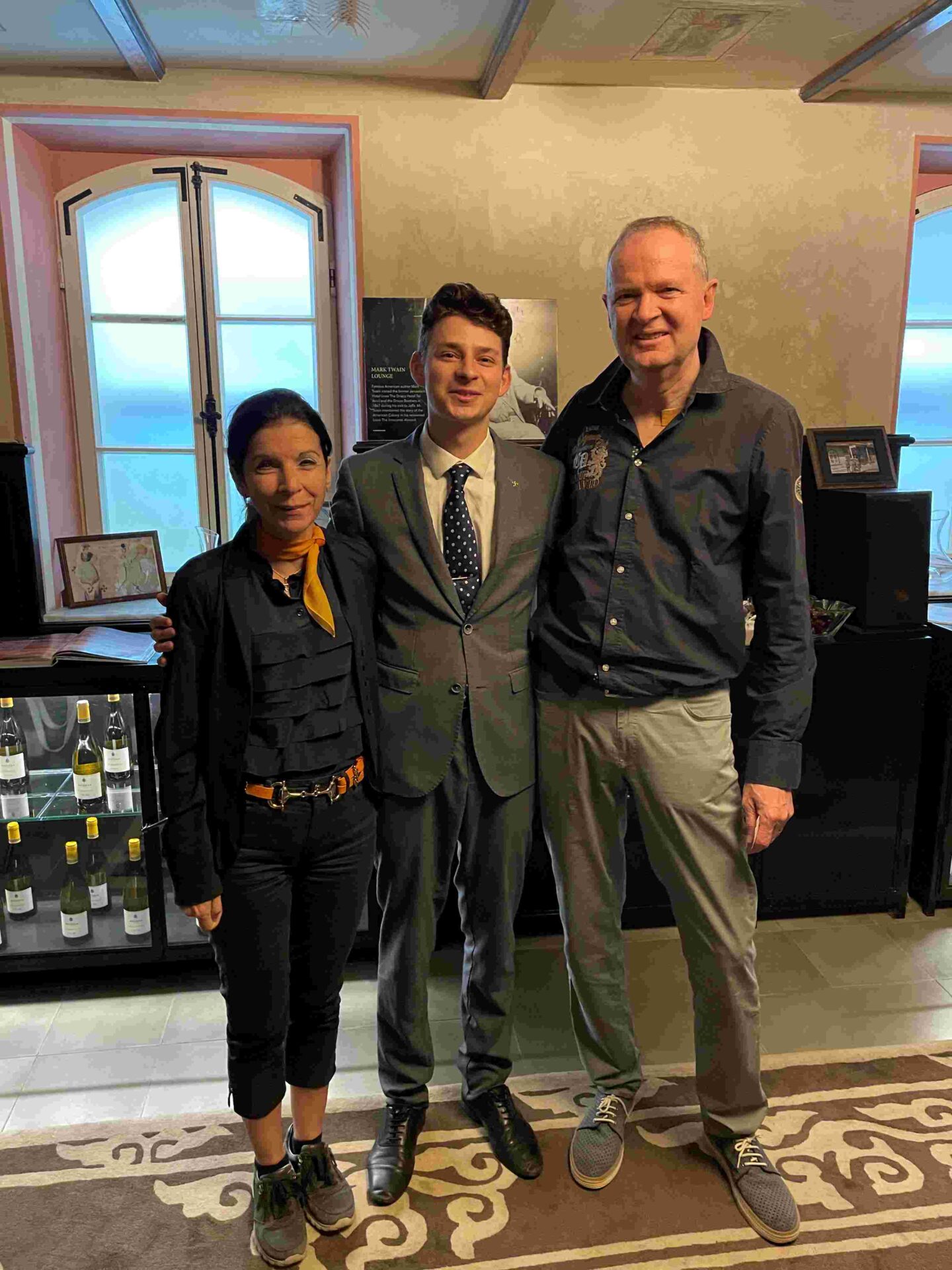
We also speak to Daniel, the junior manager of the Drisco Hotel in Tel Aviv. We are the only foreign guests at the hotel at the moment and as he has lived in Austria for a long time, he wants to get to know us. We sit down together on the terrace. He has served as a reservist for four months since the start of the war and got married three weeks ago, later than originally planned, because of the war. He doesn’t want to talk about his time at the front. But he plans to leave Israel for a few years and only return, when there is more stability and security. This sad decision clearly shows, that many Israelis feel shocked, insecure, traumatized – and hopeless. Because everyone who leaves, gives up the two-thousand-year-old hope of being an independent people in the old homeland. And everyone, who leaves, ultimately fulfills Hamas’ goal: to expel the Jews from Israel.
“You can break our hearts, but not our spirit”
In the afternoon, we have an appointment with Mor, a manager at the George & John restaurant in Tel Aviv.
She is the granddaughter of Jews from Yemen, Egypt, Persia and Turkey. While some of her grandparents immigrated before 1948, the others had to leave their Arab countries of origin after the War of Independence. They left all their belongings behind. They had a cobbler hide the title deed for a small plot of land in Israel, in the sole of their shoe, so that they could take it with them.
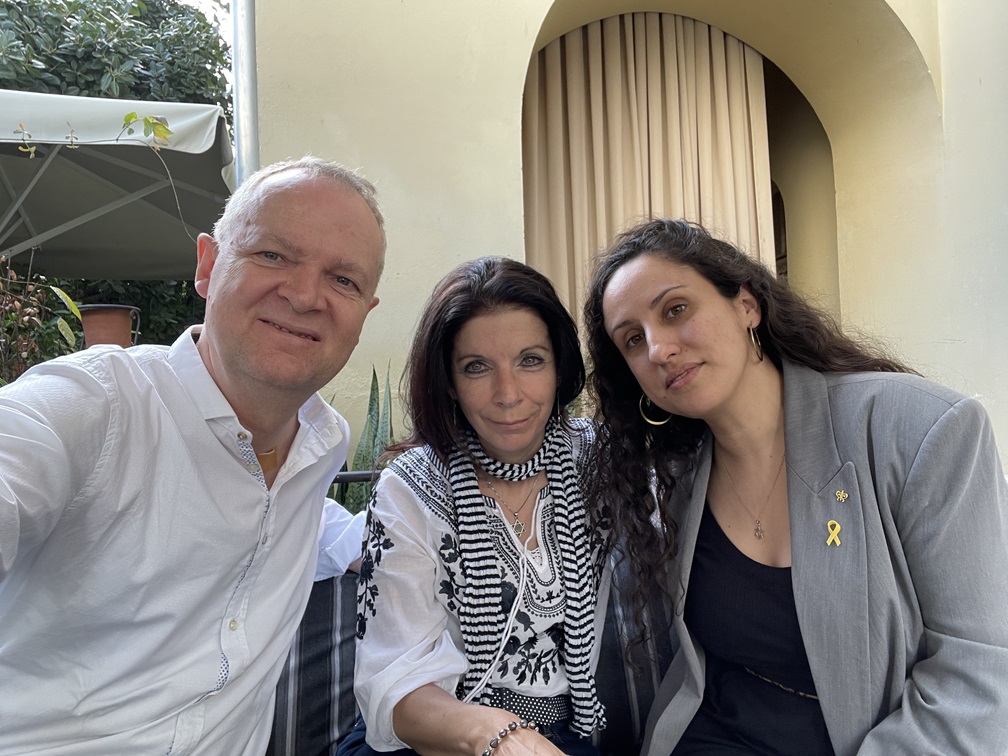
The restaurant, where Mor works, was closed on October 8 after the Hamas attack and only reopened in December. The employees used the “free” time to prepare food for the soldiers and to care for evacuees.
She explains: “This is not a normal war. All humanity is being exploited. Terrorists simulate children crying in seemingly abandoned houses to lure soldiers into traps. Arab women pretend to need help so that Israelis can be distracted and attacked from ambush. Nothing is as it seems. Of the soldiers who return, many suffer from post-traumatic stress disorder”.
Basically, she is more worried about society than rockets. After the attack, everyone stood together. But now, the old differences are resurfacing. “Our society needs healing, we have to learn to be united, even if we sometimes have different opinions.” A normal life will only be possible again for Mor, after all the hostages have been freed and the evacuees have been able to return. She is certain that many will return to the borders – out of love for Israel, to protect the country. Until then, “it’s not a matter of life, but survival”. Otherwise she would feel guilty.
She is disappointed by the double standards and the hypocritical know-it-all attitude of the world. Nevertheless, she is confident, because Israel has gone through extremely difficult times – over and over again – throughout the millennia and has survived nonetheless. “You can break our hearts, but you can’t break our spirit.”
Her request to us: “publish on your website ARC to Israel what you have experienced here, raise awareness of our situation and do not allow the hostages to be forgotten”.
The empty streets of Jerusalem
After three days, our journey continues to Jerusalem. GPS interference, designed to misdirect rocket attacks, occurs and reminds us of the constant threat from Hezbollah and Iran. We are on our way to the Kotel (Western Wall) when our GPS locates us in Cairo.
We have never seen the square in front of the Kotel so empty. But now it really is a place of prayer. No more screaming tourists posing and taking selfies. The atmosphere is wonderful.

But here, too, reality catches up with us: there are signs all along the sides, pointing to shelters, that didn’t exist in the past.
On the way home, we cross the large square by the Hurva Synagogue. Lonely and dark. Only one other person besides us. Jerusalem is beautiful at dusk, but apart from us, hardly anyone enjoys it.

The impressions continue the next morning. We are alone in the Bezalel hotel‘s breakfast room and when we walk into the old town afterwards, we realize that the once bustling, lively streets of the bazaar are deserted. Has the “Holy City” become a ghost town during the war?
Jerusalem remained outwardly unscathed on October 7. But the numerous terrorist attacks here afterwards and the current threat characterize the atmosphere in the city, as does the fear for the soldiers on the front and the mourning for those murdered, killed and kidnapped. In Tel Aviv the pain was very loud. Here it is quieter, but nevertheless can be felt everywhere. Israel’s open wounds have been bleeding for months and are sapping the country’s vitality: the unfinished battle against Hamas, the cruel losses and the suffering of the hostages.
Reunion with good friends
The next day is characterized by encounters with old friends. First, Aviel Schneider from Israel Today comes by to welcome us, and then we meet Moshe Kempinski from the Shorashim Shop on the square in front of the Hurva Synagogue. This used to be a lively meeting place, and the store was usually too small for the many visitors and customers. Today it’s just us.
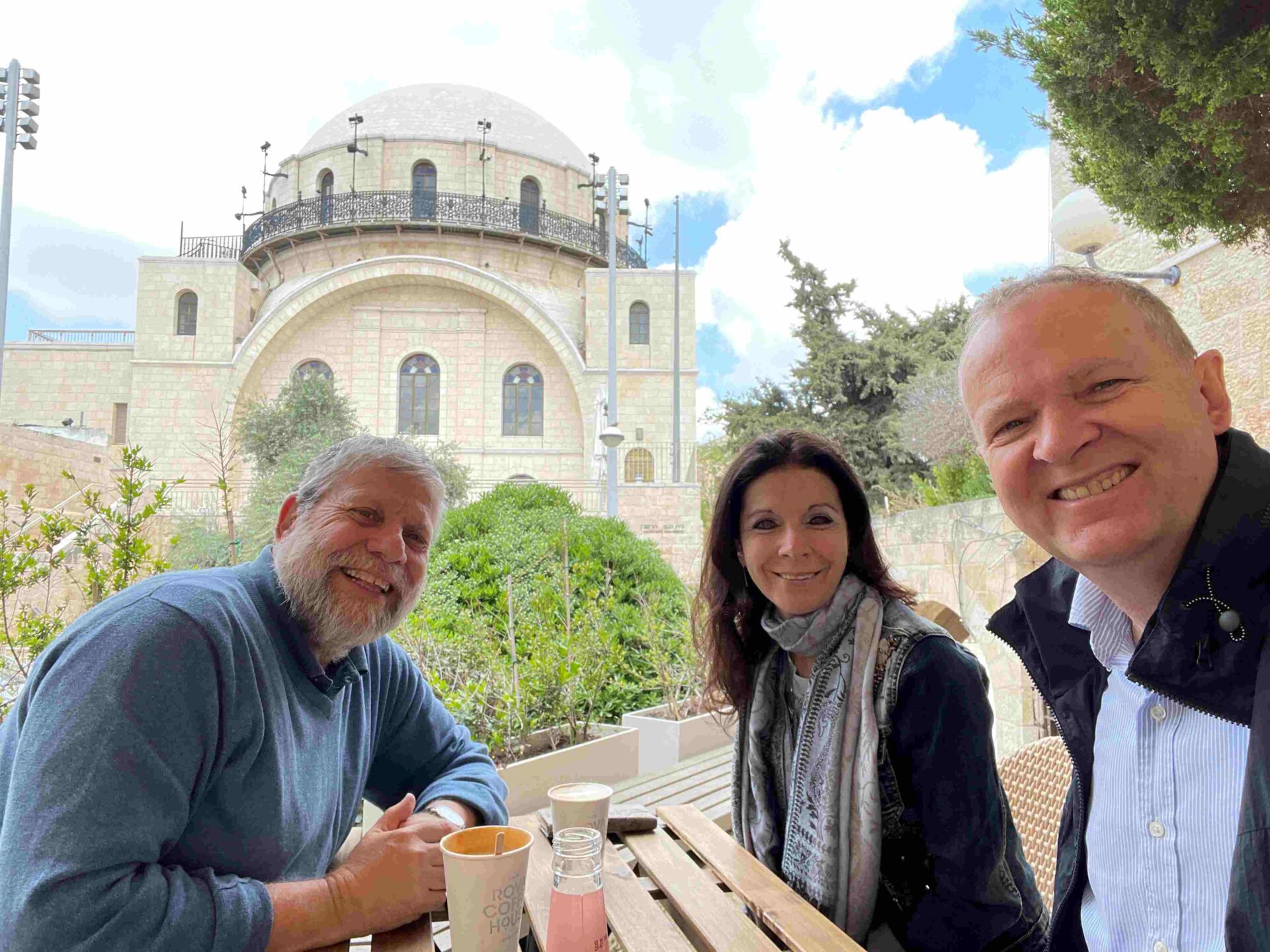
But everything has its good side – so Moshe has time, to sit with us and tell us what the last few months have been like for him. And it is impressive, how he has tried to make the most of them: he writes articles and publishes them, but it was equally important to him to be and remain a light in this place throughout the war. He also serves as a volunteer at the hospital, spending a few hours every day, trying to make the patients’ lives easier, more beautiful, to show them appreciation and care and thus put a smile back on their faces. He lends a hand everywhere, no task is too menial or too difficult for him. For him, this time and everything that happens is not a setback, but an opportunity to become more powerful and better inside. His eyes light up with warmth and confidence at these words.
Thanks to personalities like him, Israel has incredible resilience and inner strength. He talks about people, who immigrate to Israel to support their country despite this time or precisely because of it. Here, the hope that has carried Jews through 2000 years of expulsion and exile is still alive – as well as the willingness to invest everything, to keep it that way.
Carry the truth out into the world
Finally, in the evening, Corinne Goldberg visits us. She is a tour guide and we had the privilege of having her accompany us on our first trip to Israel, which was life-changing for us. She tells us, that in the first weeks after the massacre, she was paralyzed by the feeling of being let down. And she speaks about the justified lack of understanding, of why it seems so normal for the world that Israel is allowed to be attacked. But she also talks about how the Israeli people came together after 7th of October and how they were able to mobilize a new strength within themselves. Here, too, we receive the answer to our question of how we can help: by carrying the truth out into the world and being a voice for Israel.
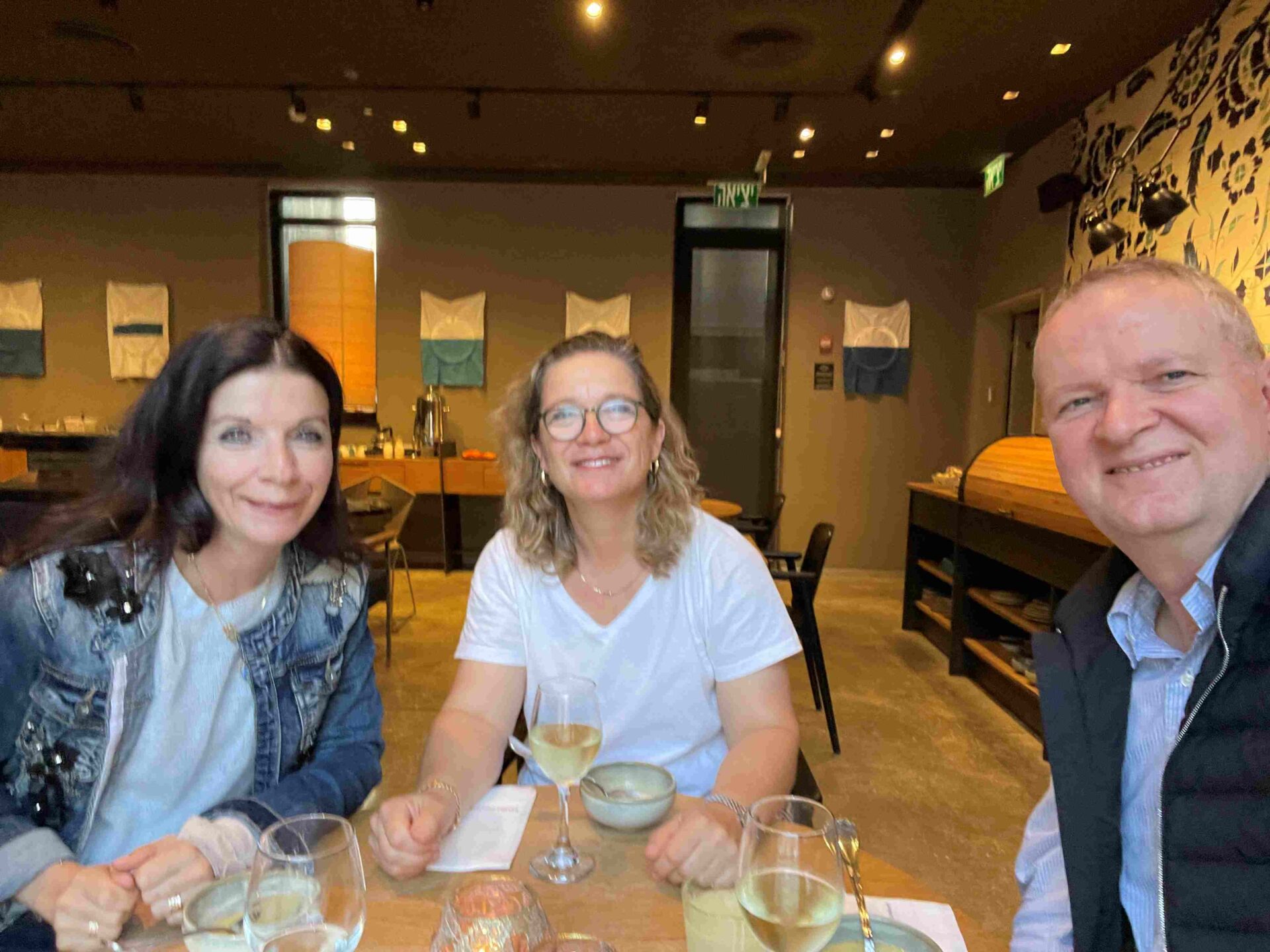
During our first few days, we have gained a deep insight into the general atmosphere and collected impressions from very different perspectives. It became clear how much October 7 has changed the lives and priorities of everyone in the country. And yet: no one we have spoken to so far has suffered any personal loss. But our encounters over the next few days take us to the border with Gaza. Here we witness the current fighting and meet families who have lived through and survived the massacre. And we become eyewitnesses to the Iranian attack. Find out about the hostage tragedy in the article: “Bring Maya Home Now!” and continue reading the second part of: “Wounded Israel – A place of tension“, which will be published soon.
More articles from Brigitte B. Nussbächer under: www.arc-to-israel.org/en/artikel


